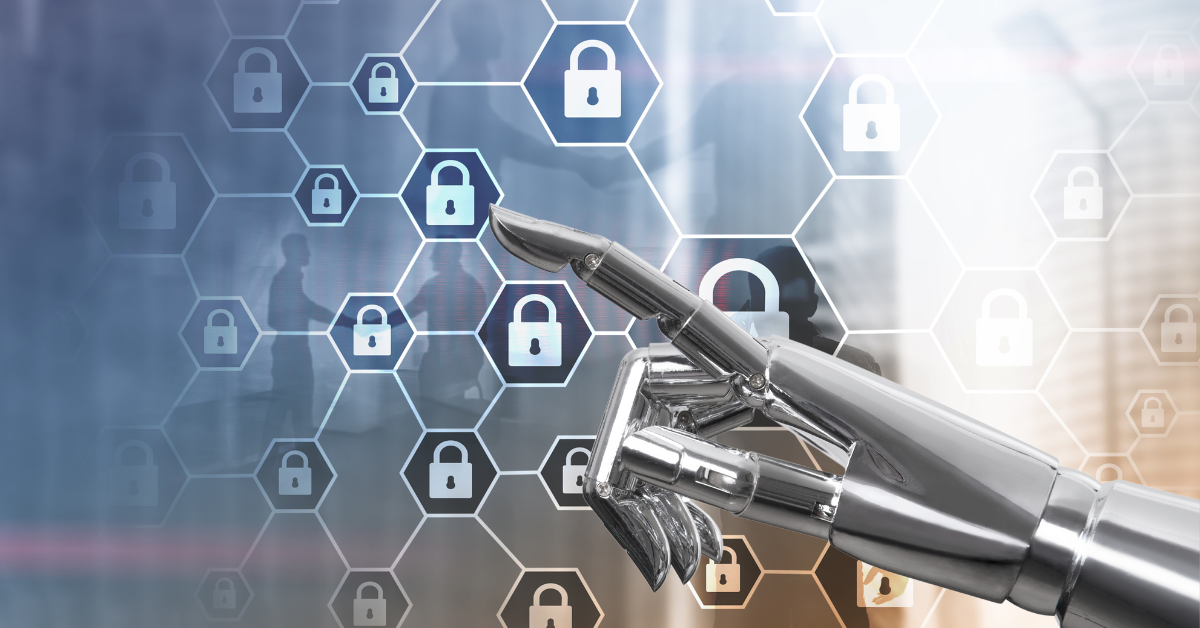The integration of AI into the field of cybersecurity has sparked a flurry of debates, raising concerns about safety, ethics, and the fundamental nature of cybersecurity itself. As we wade through these discussions, one big question looms: What lies ahead for cybersecurity professionals in a world increasingly dominated by AI? According to Forrester Research, cybersecurity is the most rapidly growing segment of the AI software market.
Read on to learn more about AI’s role in cybersecurity: where it may be very helpful and where it might create problems.
What Is Artificial Intelligence (AI)?
Artificial Intelligence, commonly referred to as AI, is a branch of computer science dedicated to creating intelligent machines that can mimic human-like cognitive functions. These functions include learning, problem-solving, perception, reasoning, and decision-making. AI systems are designed to analyze vast amounts of data, recognize patterns, and make predictions or decisions with minimal human intervention.
AI’s Role in Cybersecurity
AI has become indispensable in the following areas of cybersecurity:
- Incident Response
- Threat Intelligence
- Threat Hunting
- Compliance Monitoring
- Vulnerability Management
- Third-Party Risk Management
- Threat Detection
- Malware Analysis
- Reverse Engineering
- Open Source Intelligence (OSINT)
- User and Entity Behavior Analytics (UEBA)
AI and Cybersecurity Experts
Let’s take a closer look at the top reasons why the relationship between AI and cybersecurity experts should be seen not as a rivalry but rather as a collaboration.
Complex Decision-Making
AI will not fully replace cybersecurity experts due to the intricate nature of decision-making in the field. While artificial intelligence can process and dissect vast datasets, human intelligence remains indispensable for navigating nuanced scenarios.
Cybersecurity professionals bring a nuanced understanding of context and ethical considerations to the table. AI’s lack of creativity makes it unlikely for AI to supplant the need for human cybersecurity experts.
Adaptability
Cybersecurity experts play a pivotal role in adapting strategies, updating policies, and ensuring the efficacy of AI systems in combating evolving threats. By staying abreast of the latest cyber threats, cybersecurity professionals can tailor strategies to effectively mitigate risks. Moreover, humans, not AI, are responsible for updating policies to reflect the dynamic nature of cybersecurity, incorporating new regulations, best practices, and emerging technologies.
Cybersecurity experts also oversee the training of AI systems, ensuring they are equipped with the most current data and threat intelligence available. This continuous refinement is necessary for optimizing the performance of AI-driven security solutions and maintaining resilience against evolving cyber threats.
 Ethical and Legal Considerations
Ethical and Legal Considerations
The field of cybersecurity operates within a framework of laws, regulations, and ethical guidelines that govern the use of technology and data. While AI systems can process vast amounts of information and identify potential threats, they lack the moral reasoning capabilities inherent to human experts.
Human oversight is essential to ensure that actions taken by AI systems adhere to legal requirements and ethical standards. They assess risks, weigh potential consequences, and make decisions that align with broader ethical principles and legal mandates.
By integrating human judgment into the cybersecurity process, organizations can mitigate the risk of unintended consequences and ensure the responsible use of AI technology in protecting digital assets and privacy.
AI Vulnerabilities
AI’s inability to replace cybersecurity experts stems from the inherent vulnerabilities within AI systems themselves. These systems are not immune to cyberattacks. In fact, they can become prime targets for cybercriminals seeking to exploit weaknesses. Techniques like data poisoning or adversarial attacks can compromise security measures.
Data Poisoning
Data poisoning is a type of cyber attack or manipulation in which a cyber criminal introduces misleading, false, or malicious data into a machine learning system’s training dataset. Data poisoning attacks compromise the integrity and effectiveness of the machine learning model trained on that dataset.
Defense against data poisoning attacks necessitates human engagement. It involves techniques such as robust data preprocessing, outlier detection, and anomaly detection to identify and mitigate the effects of poisoned data. Additionally, maintaining the integrity of the data pipeline and implementing strict access controls can help prevent unauthorized tampering with the training data.
Adversarial Attacks
Adversarial attacks are a type of attack on machine learning models, particularly those based on deep learning, where small, carefully crafted perturbations or modifications are made to input data to cause the model to produce incorrect outputs.
Since these perturbations are often imperceptible to humans, cybersecurity researchers are indispensable for designing adversarial training, which involves augmenting the training data with adversarial examples to strengthen the model.
Predictions for the Future of AI in Cybersecurity
AI will revolutionize the efficiency of cybersecurity operations. By harnessing the power of AI, cyber professionals will be able to triage and respond to emerging threats at an unprecedented speed. Through sophisticated analysis of vast amounts of data, AI will provide invaluable insights, enabling quicker and more effective decision-making. This enhanced efficiency will not only bolster security postures but also optimize resource allocation, ultimately reducing costs and boosting productivity.
Despite advancements in AI, human expertise remains indispensable in the field of cybersecurity. While AI can augment and streamline various tasks, it has not attained the cognitive capabilities or creativity of human analysts. As such, human oversight and intervention will continue to be essential in ensuring the accuracy and efficacy of AI-driven security solutions. Cyber professionals must embrace ongoing learning and skill development.
The integration of AI into cybersecurity practices will give rise to a new wave of specialized roles within the industry. While certain entry-level positions may be streamlined or automated by AI, the demand for skilled professionals capable of developing, implementing, and securing AI systems will soar. Roles such as AI security analysts and machine learning security engineers will become increasingly prevalent as organizations seek to leverage AI to fortify their defenses against evolving threats.
Want to Learn More?
Advanced Logic can help you build a robust security strategy with the help of our FLxSecure suite of managed security services. Call us at 800-ATEAM-4U, or click to schedule schedule no obligation 1 on 1 conversations with our team.
Why IT Security is Essential for Business Success






